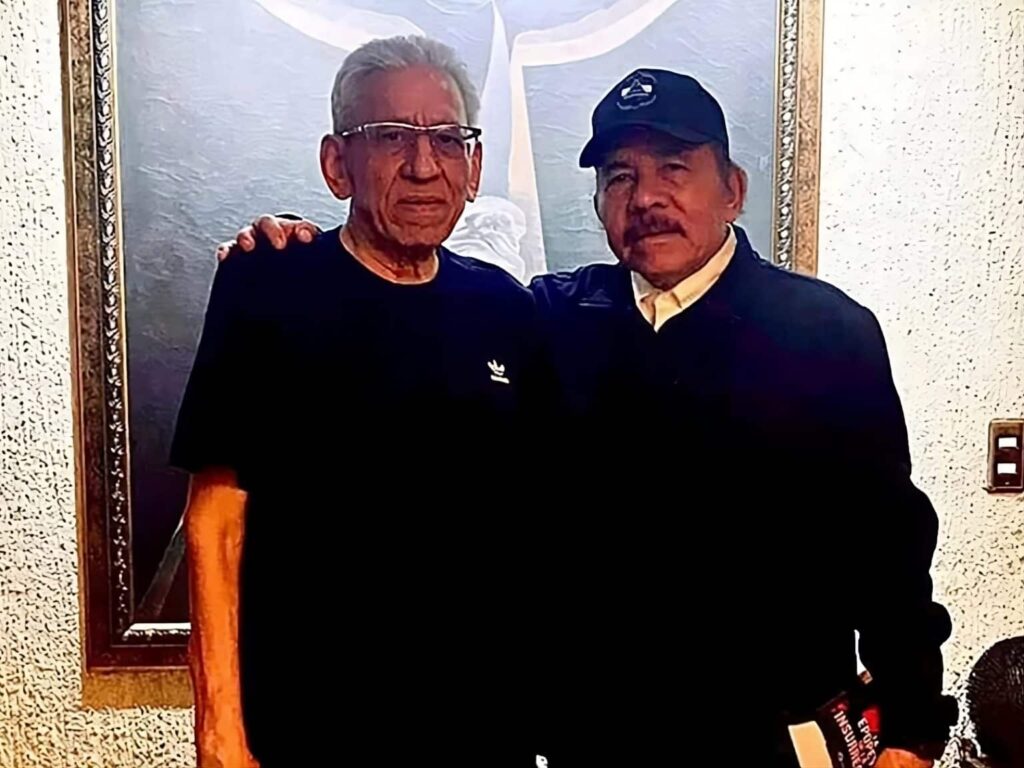
Humberto’s situation reflected the dispute over power and the correlation of forces between Daniel Ortega and Rosario Murillo. It’s also a challenge for the Army.
By Monica Baltodano (Confidencial)
HAVANA TIMES – Days before being put under house arrest by the Ortega-Murillo dictatorship, Humberto Ortega phoned us and conversed at length with my partner Julio Lopez and myself. As is known, shortly after our talk he was detained, in reprisal for his May 2024 interview with Fabian Medina of the Argentine news site Infobae.
In that telephone call, Humberto Ortega wanted to let us know what he was thinking. He commented that in December 2022, he suffered a serious health crisis that he had now overcome. “I’m feeling good. I’ve recovered. You could say that I’m now well, active, and with energy to continue contributing to the solution to our country’s crisis.” Later, he repeated to us the key principles of his current political position.
He told us that during his health crisis he had reopened communication with Daniel – who visited him in his home – and that in their conversations he’d told him he wasn’t against the government, but neither was he against the opposition. Rather, he felt that Nicaragua’s political crisis should have a [negotiated] solution like that of many wars, including the war of the 80s in our country. He said his viewpoints weren’t new to Daniel, because, “I’ve given public declarations, like for CNN in 2021, where I said that the political prisoners weren’t terrorists; and later, when Hugo Torres died in jail, and also in favor of Bishop [Rolando] Alvarez in 2023, calling him a serious and valiant person.”
In answer to our questions, he responded that Daniel Ortega was very clear about his position and that he advised the path of dialogue. He recalled his experiences when they met face to face for the first time with the Contra in the [1988] negotiations at Sapoa, and the mutual hate they felt. “With the Contra, we were killing each other with bullets, and even so, we were able to rise above so much violence and resentment and arrive at agreements.” “From the Asian thinkers, I learned that in those circumstances you must look your adversaries directly in the eye, but also look into their heart to see their humanity. We’re all human, although we may be in different bands.”
He summarized for us his position: ”My position continues to be that of the political center. To reject the extremes. Propose moderate, centrist alternatives involving compromise among all the sides. All of us should be capable of coexisting in Nicaragua. Only in that way can there be peace and stability.”
At another moment, he recognized: “There are extremist sectors on all sides, among the Sandinistas but also among some on the right, who prescribe a settlement of scores with all the Sandinistas, beginning with myself,” he recognized. “But you have to have patience.” He recalled: “Everything has its moment.”
He attributed those focuses to his experiences in Asia and related an anecdote when he traveled with Oscar Turcios to “snowy Manchuria.” There, they arrived for


